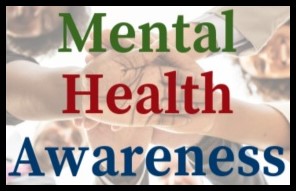
In this segment of our Mental Health Awareness series, we'll take a look at Attention Deficit Hyperactivity Disorder, or ADHD.
In general, people diagnosed with ADHD have difficulty with some life skills, like paying attention or listening to instructions. People who have ADHD may have trouble remembering details or completing tasks. Impulsive or 'reckless' behavior may also be a problem for people with ADHD.
There are many myths out there about ADHD:
-
"ADHD is fake."
Nope. It's quite real, opens a new window. Professional medical, psychological, and educational organizations throughout the country - including the National Institute of Mental Health, opens a new window (a part of the National Institutes of Health, opens a new window) and the U.S. Department of Education, opens a new window - recognize ADHD as a legitimate medical disorder. For more information and statistics about Attention Deficit Hyperactivity Disorder, take a look at this article from ADDitude Mag, opens a new window. -
"People who have ADHD are just stupid and lazy."
Those of us with ADHD are not stupid, opens a new window. It's just that the way we experience and apply our intelligence is not the same as what most people consider traditional intelligence. We're not lazy, opens a new window either. We're often working as hard as we can, but it never seems to be enough to keep up. We often need to take a different approach to tasks to accomplish them. For more on this aspect of living with ADHD, see this article from helpguide.org, opens a new window. -
"Bad parenting causes ADHD."
Throughout history, people believed that bad parenting caused various brain and behavioral disorders. As time has passed and more research has been done, we've learned that a variety of things can cause ADHD, but parenting style isn't one of them. ADHD is primarily the result of an imbalance of brain chemistry, opens a new window. Here, opens a new window is an overview of recent findings about the causes of ADHD. -
"Kids outgrow ADHD."
Not exactly. According to the Mayo Clinic, opens a new window, "Some people with ADHD have fewer symptoms as they age, but some adults continue to have major symptoms that interfere with daily functioning." Take a look at "Living with ADHD: A Lifespan Disorder, opens a new window," from chadd.org to learn more about ADHD in adulthood.
Those of us with ADHD may also have other disorders, including Oppositional Defiant Disorder (ODD), opens a new window, Conduct Disorder (CD), opens a new window, and/or other conditions, opens a new window.
This discussion of ADHD is for informational purposes only and is not intended as a replacement for a physician's treatment.
We have compiled a list of St. Tammany Parish Library resources and external websites that have more information about living with ADHD. Please contact your nearest St. Tammany Parish Library reference librarian, opens a new window if you need help getting any of the items on this list:



Add a comment to: Mental Health Awareness: Attention Deficit Hyperactivity Disorder (ADHD)